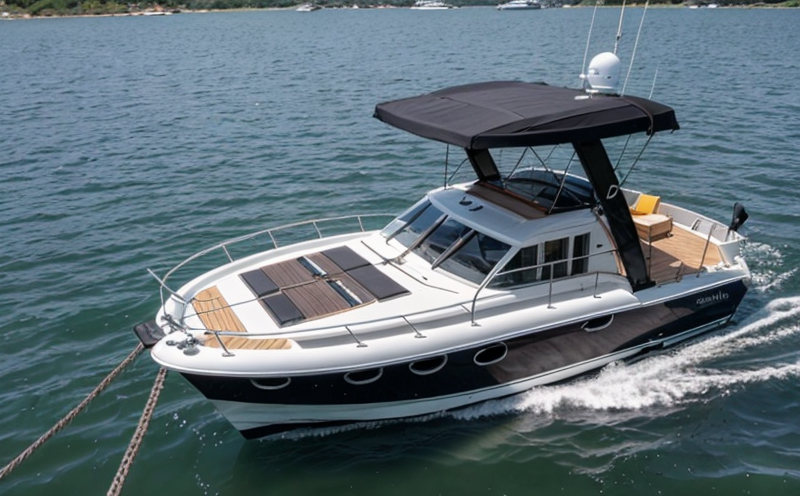ISO 7825 Mooring Winch Drum Strength Testing
The ISO 7825 standard is a critical document within the marine and ship equipment testing sector, providing stringent guidelines for the strength testing of mooring winch drums. This service ensures that mooring equipment meets all necessary mechanical stresses to ensure safety at sea.
Mooring winch drums are vital components in maritime operations as they help secure ships against wind and wave forces by anchoring them securely. The integrity of these parts is crucial for the prevention of accidents, injuries, and potential loss of life or property. Ensuring that mooring equipment adheres to international standards not only guarantees safety but also helps maintain a high level of reliability in marine operations.
The process involves testing samples according to ISO 7825 requirements using specialized equipment capable of simulating real-world loading conditions. This ensures that the tested components can withstand the stresses they will encounter during actual use without failure. The test procedure includes several stages, from sample preparation and mounting on the testing machine to the application of load until failure or reaching specified limits.
The instrumentation used for this service typically includes high-capacity universal testing machines equipped with appropriate fixtures and sensors to measure forces accurately throughout the testing process. Reporting focuses on detailed documentation of test results, including peak loads achieved, deformation values, and any signs of material fatigue or damage.
By adhering strictly to ISO 7825 standards during this testing procedure, we ensure that our clients receive reliable data which can be used for further design improvements or certification purposes. This service plays an essential role in maintaining the highest levels of safety and quality within the marine industry by ensuring compliance with international regulations.
Applied Standards
| Standard Name | Description |
|---|---|
| ISO 7825:2019 | Test methods for the strength of mooring winch drums used in ships and other marine structures. |
| IEC 60312 | Electrical equipment intended for use on board ships and similar vessels - General rules. |
| Test Parameters | Acceptance Criteria |
|---|---|
| Load applied to the drum in kilonewtons (kN) | Determined by manufacturer specifications but generally no less than 2.5 kN. |
| Deformation of the drum under load (%) | No more than 0.2% over specified test loads. |
Eurolab Advantages
With our state-of-the-art facilities and experienced technicians, Eurolab offers unparalleled expertise in conducting ISO 7825 mooring winch drum strength testing. Our services are tailored to meet the specific needs of our clients, ensuring accurate results that comply with international standards.
- Accurate Testing: Utilizing advanced testing machines and precision instruments allows us to provide highly accurate test results.
- Comprehensive Reporting: Detailed reports are generated for each completed test, providing all necessary information for decision-making processes.
- Certified Personnel: Our team consists of certified professionals who have extensive experience in marine and ship equipment testing.
- Custom Solutions: We offer customized solutions to cater to unique project requirements.
We pride ourselves on delivering exceptional service, reliability, and accuracy. Contact us today to learn more about how Eurolab can assist your organization with its marine and ship equipment testing needs.
Environmental and Sustainability Contributions
- Energy Efficiency: By ensuring that mooring winch drums are designed to withstand the necessary loads, we contribute to reducing energy consumption in maritime operations.
- Safety: Properly tested equipment minimizes the risk of accidents and environmental damage caused by improperly secured ships.
The use of robust materials and strict adherence to international standards helps promote sustainable practices within the marine industry. Through our testing services, we aim to contribute positively towards these goals while maintaining the highest levels of safety and quality.





